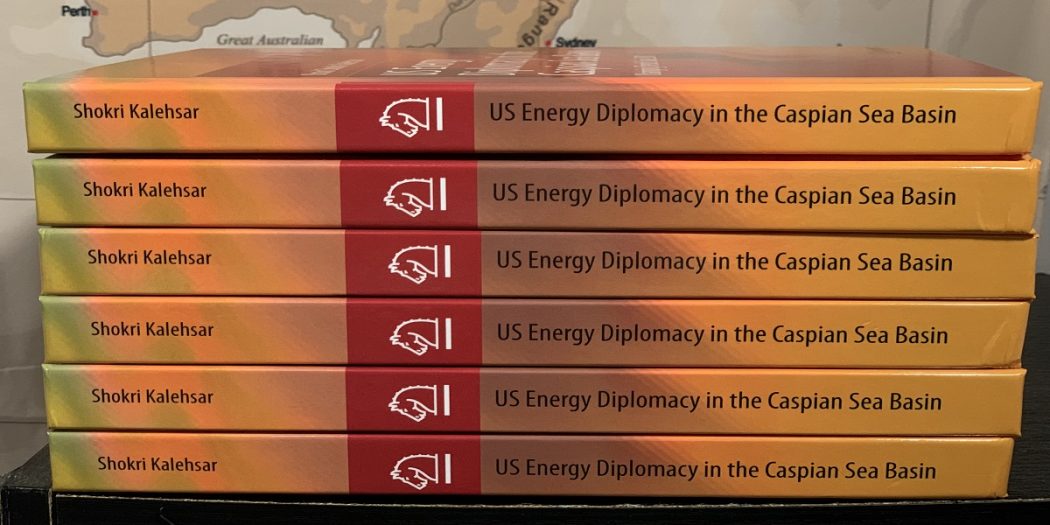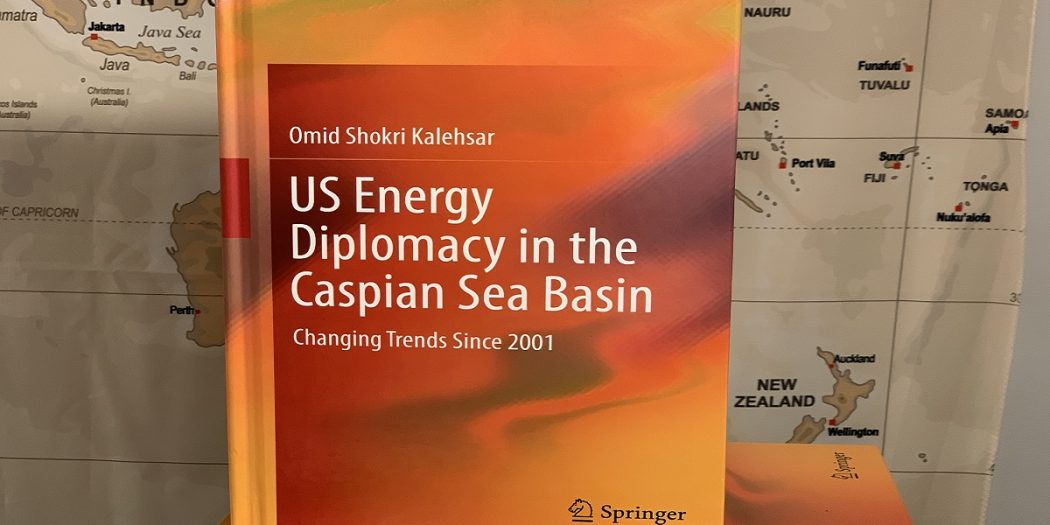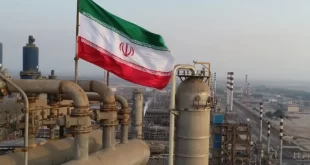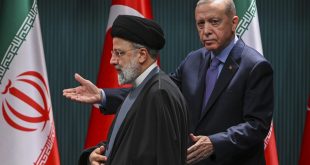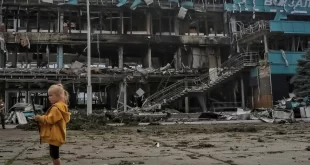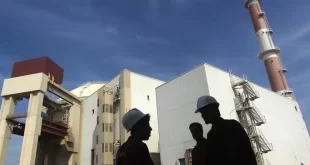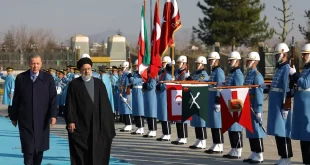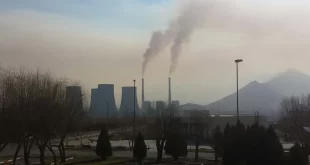Bijan Zanganeh, Iran’s former oil minister, has made bold assertions regarding Iran’s potential to significantly increase its oil production, despite minimal investments and limited access to technology. Iran’s crude oil production stood at an estimated 3,163,000 barrels per day as of January 2024, showing a slight decrease from December 2023’s output of …
Read More »Recent Articles
Building Bridges: Iranian-Turkish Economic Unity Amidst Security Rifts
Turkey and Iran have expressed a clear interest in improving their bilateral economic relations, but remain divided over a range of geopolitical and security issues, to which answers remain elusive. EmailPrintFriendlyPaylaş Iranian President Ebrahim Raisi, left, and Turkish President Recep Tayyip Erdogan leave after a joint news conference following their …
Read More »The Economic Fallout Of The Gaza Conflict For Iran
The Gaza-Israel conflict has significant implications for Iran’s already strained economy, characterized by currency devaluation, reduced government revenues, and high inflation. Iran’s involvement in the regional conflict hinders its economic growth efforts, further reduces the value of the Iranian rial, and decreases government income. Additionally, it has worsened economic problems such as …
Read More »Iran’s Chabahar Space Center: Balancing Ambitions And Realities
Iran asserts that its space program is geared towards fostering scientific advancement, yet it undeniably bolsters its regional influence, and could enhance its hard power capabilities. Space is viewed as the paramount strategic vantage point, stemming from Iran’s missile program, whose advancement holds significant geopolitical implications. The inclusion of military satellites …
Read More »Iran-Russia Arms Trade: Geopolitics And Global Implications
The military collaboration between Iran and Russia has significantly intensified since the invasion of Ukraine, with Tehran delivering offensive weapons used against civilian targets. The recent revelation by the Prana Network of Iran’s clandestine arms deal with Russia, valued at $1.75 billion, has sparked concerns about its implications on global security …
Read More »Iran Plans More Nuclear Reactors Despite Serious Hurdles
Iran’s recently stated plan to build four more nuclear power reactors has raised questions about its feasibility as the country wrestles with economic crisis and isolation. According to early estimates, work has started in the southern region with a five-thousand-megawatt total capacity in mind. With 4,000 employment prospects and an estimated …
Read More »Turkey And Iran Try To Find Common Ground Amid Complexities
Iranian President Ebrahim Raisi’s visit to Turkey this week came against the backdrop of the Gaza war, ongoing regional crisis and conflicts in bilateral relations. The visit on Wednesday and the issues discussed reflected the intricate dynamics between Iran and Turkey. The visit resulted in ten agreements, emphasizing collaboration in …
Read More »Iran’s Hydrogen Fuel Production Plans Face Significant Hurdles
Iran currently lacks a substantial presence in the burgeoning hydrogen industry, despite its abundance of natural gas and renewable energy potential. Utilizing renewable energy sources such as solar or wind power, “green hydrogen“ is produced by electrolysis, which produces hydrogen without any emissions. This contrasts with traditional techniques that release carbon dioxide. Experts anticipate …
Read More »Iran’s Gas Shortage Prompts Increased Use Of Dirty Fuels In Industry
Iran has significantly increased the consumption of Mazut, a dirty fuel, in cement factories, despite widespread warnings and criticisms of its use in power plants. Ali-Akbar Alvandian, the secretary of the Association of Employers of the Cement Industry in Iran, has reported a several-fold increase in Mazut consumption in cement …
Read More »Iran Remains Undecided About International Financial Conventions
The logo of the FATF (the Financial Action Task Force) is seen during a news conference after a plenary session at the Organisation for Economic Cooperation and Development Headquarters in Paris, France, October 18, 2019.
Read More »
